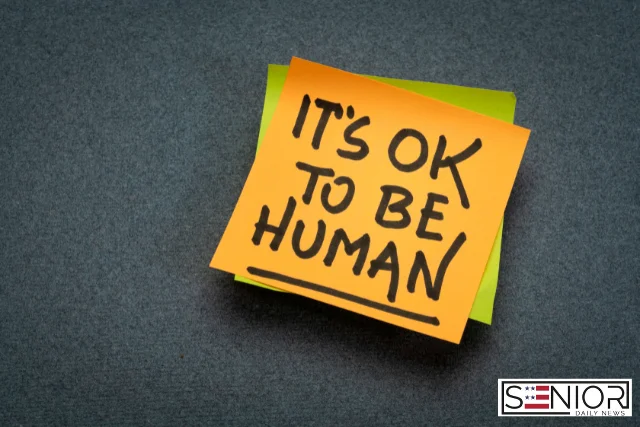Power of Vulnerability: Asking for Help Reveals Strength

We live in a culture that celebrates self-reliance. From Hollywood cowboys to the stories of self-made millionaires, the idea of the “lone wolf” has been deeply woven into the American identity. But here’s the truth that often goes unspoken: even the strongest people need help. And asking for it? That’s not weakness—it’s wisdom.
In fact, asking for help is a powerful sign of emotional strength. Whether you’re navigating health challenges, grieving a loss, or simply struggling with the everyday tasks of aging, reaching out for support is one of the healthiest choices you can make—especially for seniors in the United States, where loneliness and isolation are growing concerns.
Let’s bust the myths and spotlight the truth: strong people ask for help—and here’s why you should too.
The Lone-Wolf Myth: Where Did It Come From?
The image of the lone wolf thrives on the belief that strength equals independence, and that needing others is a flaw. This myth is reinforced by:
- Cultural messaging (“Pull yourself up by your bootstraps”)
- Generational values (especially among seniors raised with ideas of stoicism)
- Fear of burdening others
- Pride or embarrassment
But let’s be real: wolves are pack animals. Even in nature, isolation is rarely a recipe for survival or success. The idea of doing everything alone may seem noble, but it’s often unrealistic and damaging to our mental and physical health.
Why Asking for Help Is a Sign of Emotional Strength
1. It Shows Self-Awareness
Recognizing when you need help takes emotional maturity. It means you understand your limits and are willing to advocate for your well-being. That’s not weakness—it’s wisdom.
2. It Builds Stronger Relationships
Asking for help fosters trust and connection. People often feel honored when you confide in them or allow them to be part of your journey. Relationships deepen when they’re built on mutual support.
3. It Protects Your Mental Health
Studies show that social support is crucial in managing stress, anxiety, and depression—especially in older adults. Mental health support isn’t just about therapy. It’s about community, companionship, and the courage to say, “I’m not okay, and I need a hand.”
4. It Sets a Powerful Example
When seniors ask for help, they send a message to their children, grandchildren, and peers: it’s okay to lean on others. That’s a legacy of strength worth passing down.
Common Barriers Seniors Face When Asking for Help
● Fear of Burdening Others
Many seniors don’t want to “trouble” their children or caregivers. But more often than not, loved ones want to help—they just need to be asked.
● Pride or Embarrassment
Asking for help might feel like admitting defeat. But it’s actually a sign of resilience. Acknowledging that you can’t do it all isn’t failure—it’s life.
● Not Knowing Where to Turn
From transportation services to emotional support groups, resources are available. The challenge is often knowing what help is available and how to access it.
Reframing the Conversation Around Help
If you find it hard to ask for help, try reframing your mindset:
| Instead of Thinking | Try Thinking |
|---|---|
| “I should handle this on my own.” | “Even the strongest people need support.” |
| “I don’t want to be a burden.” | “People feel good when they can help others.” |
| “I’m too old to ask for help.” | “I’ve earned the right to care and support.” |
How to Ask for Help Without Guilt
Here are some simple, respectful ways to reach out:
- Be direct and specific: “Could you help me pick up groceries on Friday?”
- Express gratitude: “I’d really appreciate your help with this.”
- Give others the chance to say yes: You’re not forcing them—you’re giving them an opportunity.
And remember: everyone needs help sometimes. You’re not alone.
Types of Support Available for Seniors in the U.S.
???? Health and Wellness Support
- Medicare-covered services: Home health care, physical therapy
- Community clinics: Offer affordable mental health support
- Telehealth: Virtual appointments for therapy or checkups
???? Daily Living Assistance
- Meal delivery programs: Meals on Wheels
- Transportation services: Local senior shuttles or ride-share programs
- In-home caregivers: For help with medication, bathing, and errands
???? Emotional and Social Support
- Senior centers: Classes, games, and group activities
- Faith communities: Pastoral counseling and support groups
- Online support networks: Facebook groups, forums for seniors, therapy platforms
???? Emergency and Hotline Services
- 988 Suicide & Crisis Lifeline
- Eldercare Locator (1-800-677-1116): Connects seniors to local services
Real Strength Is Found in Connection
Think about your life. How many times have you offered a helping hand to someone else? Did it make you feel weak—or strong, capable, and fulfilled?
That’s how others feel when they help you.
Strength isn’t measured by how long you can hold out alone. It’s measured by your willingness to reach out, build community, and take care of your mental and physical well-being.
It’s time to rewrite the narrative: asking for help is not giving up—it’s stepping up.
FAQs: Asking for Help and Emotional Strength
Q1: Is asking for help a sign of weakness?
No. It’s a sign of emotional intelligence and courage. Acknowledging your needs and seeking support shows maturity and resilience.
Q2: What should I do if I feel guilty asking for help?
Remind yourself that others often feel good when they help. You’re not a burden—you’re giving someone a chance to show they care.
Q3: Where can seniors find mental health support?
Local senior centers, Medicare-covered therapy, and online platforms like BetterHelp or Talkspace offer options. Also consider calling 988 for immediate emotional assistance.
Q4: I don’t want to bother my kids. What are my options?
Many community-based programs exist specifically to help seniors. Contact the Eldercare Locator or your local Area Agency on Aging.
Q5: How can I overcome the fear of being judged?
Start by confiding in someone you trust. Most people are far more understanding than we assume—and you may inspire them by your honesty.
Image Source: Canva






